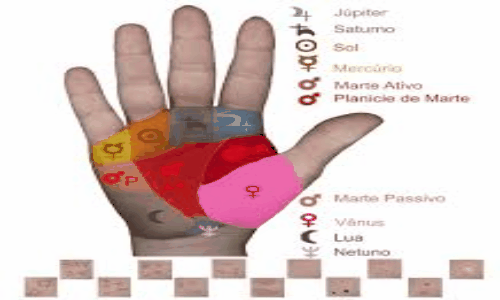Advertisements
Exploring the world of vegan eating can be a transformative journey full of surprising discoveries. Delving into the secrets of this lifestyle is not only a way to adopt a healthier diet, but also to contribute to the well-being of the planet. This article will reveal the multiple benefits that a plant-based diet can provide, from strengthening the immune system to improving cardiovascular health.
However, the transition to veganism is not without its challenges. Many people struggle with food substitution and ensuring balanced nutrition. It is essential to understand how to overcome these obstacles and avoid common nutritional deficiencies. This space will provide valuable information to help navigate these issues, presenting practical and accessible solutions.
Advertisements
For those just starting out on this journey, essential tips will be shared to help ease the transition to a new lifestyle. From choosing versatile ingredients to creating tasty and nutritious meals, the goal is to make the vegan experience as rewarding as possible. Here, practical advice will be offered that can be incorporated into your routine gradually and effectively.
In addition, the positive impact of veganism on the environment will be discussed, since reducing the consumption of animal products can significantly contribute to reducing the carbon footprint. By opting for a more sustainable lifestyle, each food choice becomes an act of environmental responsibility, reflecting a commitment to a greener future.
Advertisements
This is an invitation to discover how veganism can transform your personal health and the world around you. Follow along and find inspiration to embrace a lifestyle that celebrates the harmony between personal well-being and the preservation of the planet. 🌱

Benefits of Vegan Diet
Adopting a vegan diet can bring a number of benefits to your health and overall well-being. Many studies show that a plant-based diet can be rich in essential nutrients and can help prevent several chronic diseases. Among the main benefits is a reduced risk of heart disease, since this type of diet generally has low levels of cholesterol and saturated fats.
Additionally, a vegan diet can help with weight control. Plant-based foods tend to be lower in calories and higher in fiber, which helps to promote a feeling of fullness for longer. People who adopt a vegan diet generally have lower body mass indexes and a lower incidence of obesity.
Another benefit is improved digestive health. The high fiber intake, characteristic of a vegan diet, helps maintain regular intestinal transit, promoting more efficient digestion. In addition, a diet rich in fruits, vegetables, whole grains, and legumes can help strengthen the immune system, providing more energy and disposition in everyday life. 🌿
Challenges of Transitioning to Veganism
Starting a vegan diet can be challenging for many people, especially those who grew up in environments where the consumption of animal products was the norm. One of the main challenges is the need for meal planning. It is important to ensure that all nutritional needs are met to avoid deficiencies, such as vitamin B12, iron and omega-3.
The availability of vegan foods can also be a barrier, depending on where you live. In some areas, finding vegan products in supermarkets or restaurants can be difficult. However, as veganism becomes more popular, many options are becoming more accessible. It’s important to be prepared to cook at home, which can take time and practice to adapt to new recipes.
Additionally, social support can be a challenge. Some people may not understand or support your choice to follow a vegan diet, which can lead to awkward moments at social events or family meals. In these cases, open communication about your dietary choices and seeking out support groups can be helpful. 🤝
Practical Tips for Beginners
Planning and Organization
Starting a vegan diet requires careful planning. Make a list of foods that you enjoy and that you can incorporate into your new diet. Research simple vegan recipes and start trying them out at home. It’s important to make sure your diet is varied and balanced, including plenty of fruits, vegetables, whole grains, and plant-based protein sources.
- Establish a weekly menu to make shopping easier and avoid waste.
- Shop at local markets or fairs for fresh, quality produce.
- Cook in large quantities and freeze portions for busy days.
Nutritional Education
Educating yourself about nutrition is essential when adopting a vegan diet. Understanding which nutrients are essential and where to find them in a plant-based diet is crucial to optimal health. Vitamin B12, for example, can be found in fortified foods or supplements. Sources of iron include legumes, seeds, and dark leafy vegetables, while omega-3s can be obtained from flaxseeds and chia seeds.
- Consider consulting a nutritionist who specializes in vegan diets.
- Use apps and online resources to track your nutritional intake.
- Stay up to date on new studies and discoveries in the field of vegan nutrition.
Adapting to New Flavors and Textures
One of the joys of a vegan diet is the opportunity to discover new flavors and textures. Experiment with seasonings, herbs, and spices to enhance the flavor of your dishes. Learning to cook with ingredients like tofu, tempeh, and seitan can add variety to your diet and provide new culinary experiences.
Incorporating fermented foods like kimchi and kombucha can not only add flavor but also benefit your gut health. Experiment with different preparation methods, such as baking, grilling, or sautéing, to find your favorite.
- Attend vegan cooking workshops to learn new techniques.
- Invest in vegan recipe books for inspiration.
- Don't be afraid to experiment: mistakes are part of learning! 🌱
The Environmental Impact of Veganism
Adopting a vegan diet not only benefits your individual health, but it also has a significant impact on the environment. Producing plant-based foods generally requires fewer natural resources, such as water and land, than producing meat and dairy products. Reducing your consumption of animal products can help reduce greenhouse gas emissions and conserve biodiversity.
Practicing veganism can be a conscious and ethical choice that reflects a concern for animal welfare and the sustainability of the planet. Many choose this diet as a way to contribute to a healthier and more sustainable future for future generations.
- Look for organic and locally sourced foods to reduce your carbon footprint.
- Choose sustainable packaging and avoid food waste.
- Consider supporting initiatives and organizations that promote sustainable agriculture.
Conclusion
Completing the vegan diet is an invitation to a more conscious, healthy and sustainable lifestyle. Choosing a plant-based diet brings numerous benefits, such as improving cardiovascular health, increasing energy and contributing to environmental preservation. However, starting this journey can present challenges, such as the need for planning to ensure adequate nutritional intake, especially in relation to protein, iron and vitamin B12. For those who are just starting out, it is essential to adopt some practical tips: explore new recipes, seek nutritional guidance, and try plant-based substitutes that offer flavor and nutrition.
Additionally, it’s important to remember that transitioning to veganism is a personal journey, and every step, no matter how small, counts. Use transition words like “in addition,” “therefore,” and “for example” to structure your eating plan and keep yourself motivated. Joining vegan communities can be a great way to find support and inspiration along the way.
So, by discovering the secrets of vegan eating, you’re not only improving your health, but you’re also making a positive difference in the world. This journey may be full of challenges, but the benefits are worth it. 🌱




